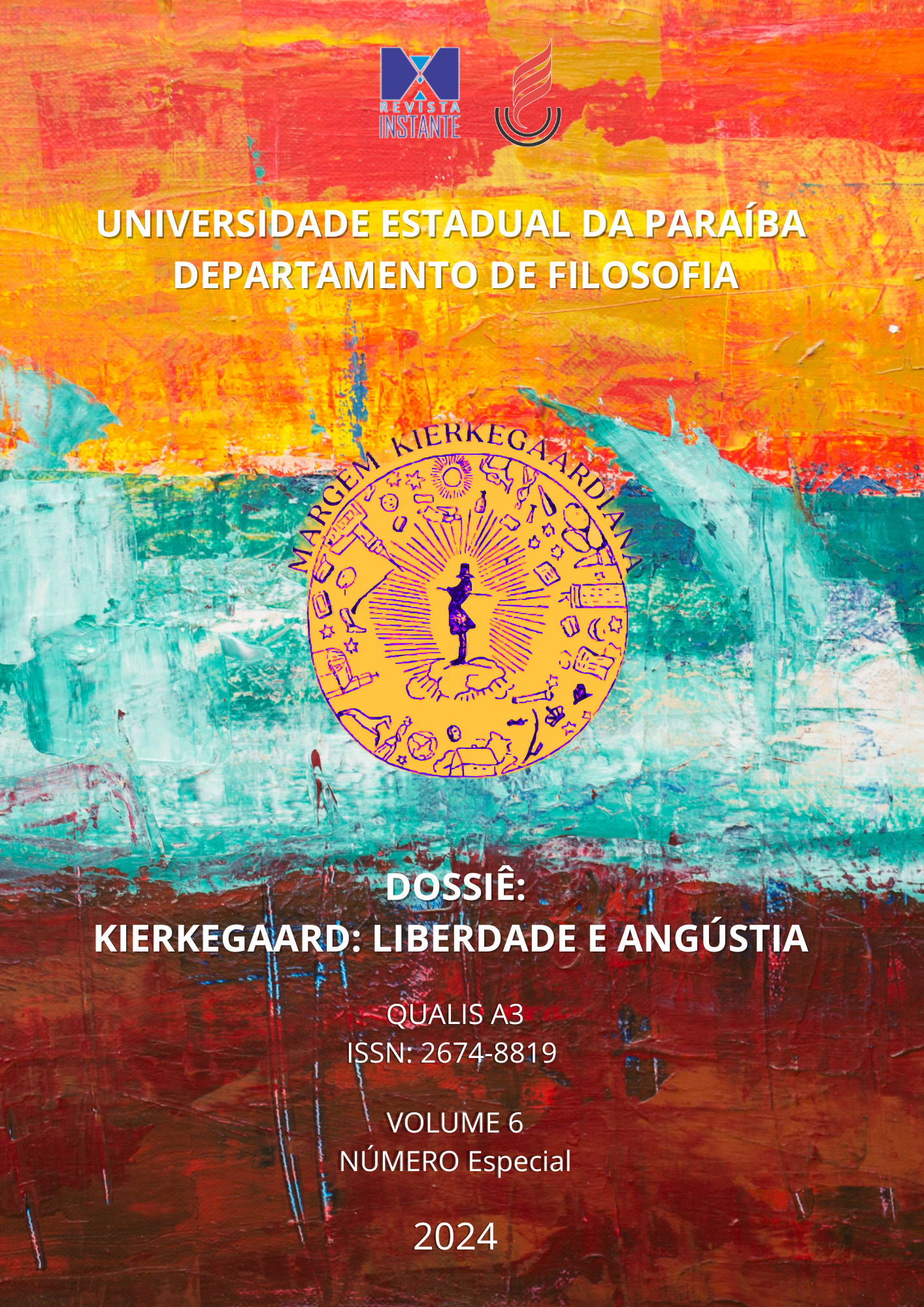A NECESSARY CONTRAST AND A CORRECTIVE MOMENT
DEMONIC AS PARODY OF EXISTENCE
Keywords:
Demonic, Parody, ExistenceAbstract
In the fourth chapter of the Kierkegaardian work The Concept of Anxiety (1844), the pseudonymous author Vigilius Haufniensis dedicates a considerable number of pages to describe the phenomenon of the demonic. Given that the work in question presents freedom as an ontological element of human existence, the phenomenon’s name justifies itself by perverting the use of freedom: presented as “anxiety about the good” in what the good is identified as freedom, the person that encounters herself in the condition of demonic state utilizes freedom in the name of non-freedom, producing an existence characterized by inclosing reserve and the sudden expressed as mutism and negation of movement. Now, in the year prior to the publication of The Concept of Anxiety, Kierkegaard has published Fear and Trembling, in which he presents Abraham as a paradigm of existence in faith. Such existence appears characterized by task, silence, leap as double movement of faith and, implicitly, as moment, being all these important concepts inside Kierkegaardian philosophy of existence as a whole. In this article we pretend to demonstrate how demonic, manifested as inclosing reserve and the sudden, appears as a parody of the type of existence characterized by Abraham in Fear and Trembling in the means that it presents, so to speak, distorted versions of those concepts that typifies existence in faith. Finally, we present an interpretative possibility of how the parody of the demonic can appear as a necessary contrast and em corrective moment to existence.
References
JESSEN, Mads Sohl. Parody/Satire. In.: EMMANUEL, S.M.; MCDONALD, W.; STEWART, J. Kierkegaard’s concepts. Tome V: Objectivity to Sacrifice. New York: Routledge, 2016. (Kierkegaard’s Research: Sources, Reception and Resources).
KIERKEGAARD, Søren. A doença para a morte. Trad.: Jonas Roos. Petrópolis: Vozes, 2022.
__________. O conceito de angústia. Trad.: Álvaro Luiz Montenegro Valls. Petrópolis: Vozes; Bragança Paulista: Editora Universitária São Francisco, 2013.
__________. O conceito de ironia constantemente referido a Sócrates. Trad.: Álvaro Luiz Montenegro Valls. Petrópolis: Vozes; Bragança Paulista: Editora Universitária São Francisco, 2010.










